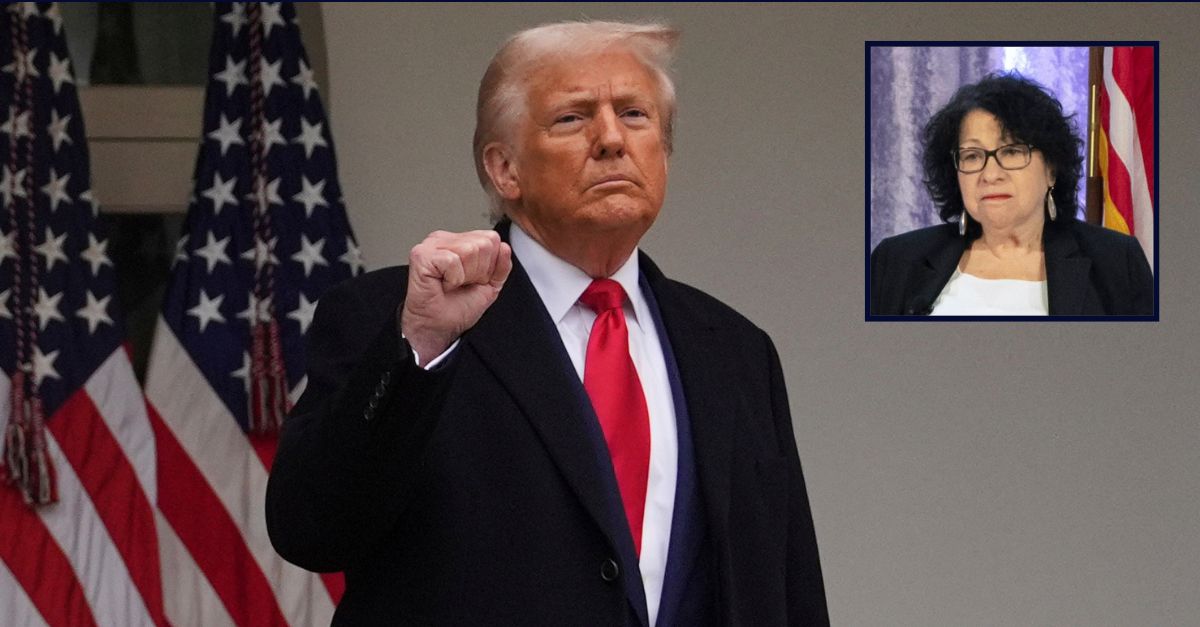Sotomayor Excoriates ‘Inexplicable’ Decision to Side with Trump Admin in Deportation Case
The U.S. Supreme Court intervened late Monday in a high-profile legal challenge surrounding President Donald Trump’s second term. The justices vacated a lower court’s order that had stopped the federal government from deporting Venezuelan migrants using an 18th-century wartime power, marking a significant shift in the ongoing legal battle over immigration policies.
The Court’s Decision: A Respite and a Setback
In a 5-4 decision, the Supreme Court ruled that the federal government could resume deportations under the Alien Enemies Act (AEA) of 1798, despite the lower court’s previous ruling halting the practice. However, the justices specified that migrants being deported under this law are entitled to notice and the opportunity to seek habeas relief before their removal. This ruling provided the Trump administration a temporary victory, but it also introduced key legal safeguards for those affected by the deportations, ensuring they receive due process as outlined by the Fifth Amendment. The decision also stopped the administration’s controversial method of deporting alleged gang members to El Salvador without proper legal proceedings, which had been a central part of the dispute. This ruling struck a balance, allowing the government to proceed with deportations while requiring more transparency and legal oversight.

Justice Sotomayor’s Scathing Dissent
Justice Sonia Sotomayor, a senior liberal on the court, delivered a sharp dissent, condemning the majority’s decision as “inexplicable” and “dangerous.” She criticized the Trump administration for its handling of the deportations, citing a case where a migrant with legal protection was mistakenly deported to a notorious Salvadoran prison. Sotomayor expressed concerns that the administration’s actions could lead to further human rights abuses, not only for noncitizens but potentially for U.S. citizens as well.
“The Government’s position implies that not only noncitizens but also United States citizens could be taken off the streets, forced onto planes, and confined to foreign prisons with no opportunity for redress if judicial review is denied unlawfully before removal,” Sotomayor wrote. She emphasized that such actions were reminiscent of lawless regimes, warning that this could set a dangerous precedent for the U.S. legal system. Sotomayor was joined by Justices Elena Kagan and Ketanji Brown Jackson in her dissent. Justice Amy Coney Barrett, a Trump appointee, partially supported the dissent.
Dissenting Opinions: A Critique of Supreme Court’s Procedural Approach
Justice Ketanji Brown Jackson also penned a dissent, criticizing the Supreme Court for its swift intervention in the case. She expressed concerns about the court’s procedural approach, calling it “misguided” and “dangerous.” Jackson lamented the increasing use of the emergency docket for important rulings, a practice she believed undermines transparency and accountability in the court’s decisions. “This ‘fly-by-night approach’ to the work of the Supreme Court is not only misguided but also dangerous,” Jackson wrote. She warned that this shift in how significant rulings are made could lead to more devastating consequences, with less public oversight of the Court’s decisions.
Legal and Political Implications
The Supreme Court’s intervention highlights the tension between the Trump administration’s immigration policies and the legal protections afforded to migrants under U.S. law. While the ruling temporarily favors the administration’s deportation efforts, it also underscores the need for greater procedural safeguards to protect vulnerable individuals from being unlawfully detained or deported. The case continues to highlight the growing divide between the Court’s conservative majority and its liberal justices, with critical implications for future immigration policies and the legal rights of noncitizens in the U.S. The debate over how to balance national security concerns with the rights of individuals remains at the forefront of U.S. legal and political discourse.


Comments are closed, but trackbacks and pingbacks are open.